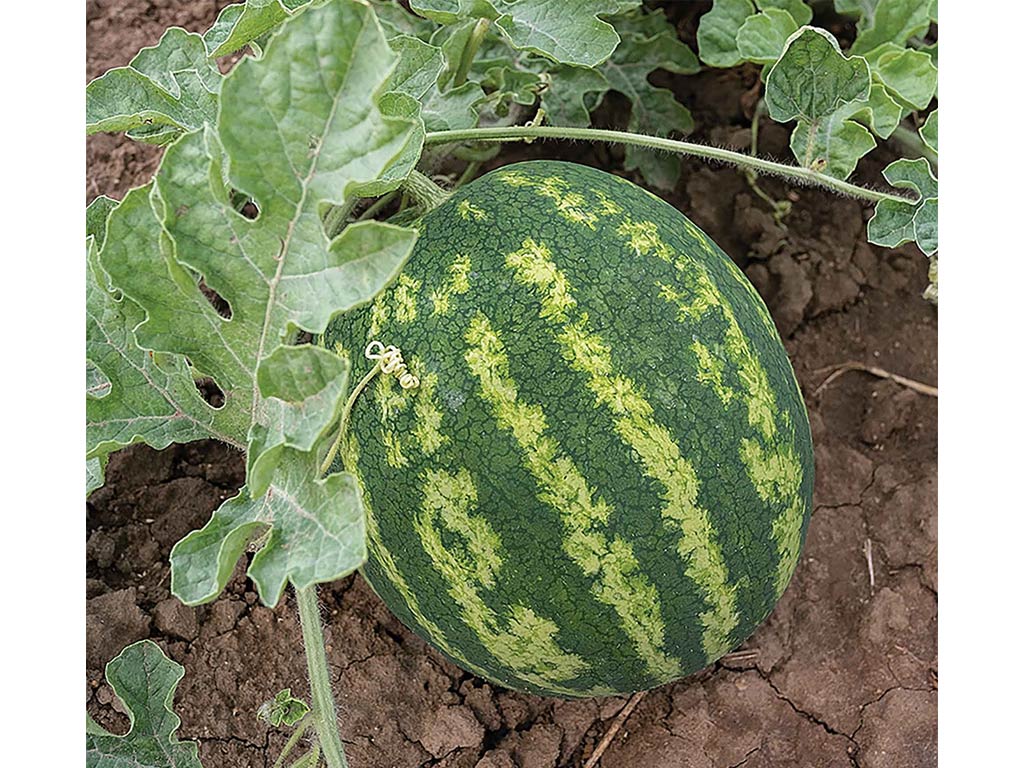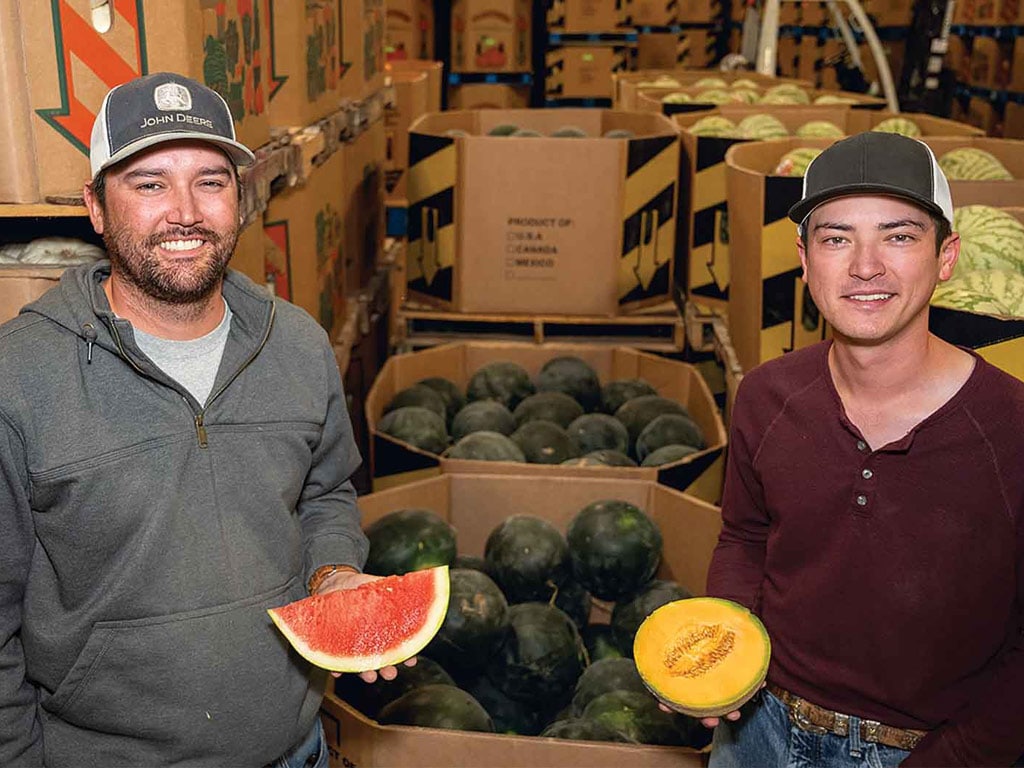
Hirakatas are known for excellent produce and helped protect their region’s reputation for food safety and quality. After a Listeria outbreak was incorrectly linked to Rocky Ford farms, they helped form the Rocky Ford Growers Association and trademark Rocky Ford Cantaloupes. Only fruit meeting high quality and safety standards get the label.
Agriculture, Farm Operation June 01, 2025
A Sweet Legacy
Another generation of Hirakatas are primed to produce.
by Martha Mintz
Thump, thump, thump. Michael Hirakata snaps the rind of a watermelon in one of hundreds of bins of the fruit residing in his family's Rocky Ford, Colorado, packing shed. The motion seems more formality or maybe just habit as he proceeds to grab the first melon he plied to cut into.
It was sweet and delicious, living up to the farm and the region's prime produce reputation.
"We're not doing anything special, just growing at elevation," he says.
On the flats stretching out from the Colorado Front Range, daytime temperatures regularly crest 100 degrees Fahrenheit before plummeting to just 65 or 70 degrees at night. It's theorized temperature swings, elevation, and maybe even mineral content of the water from the Arkansas river contribute to elevated sugars and excellent flavor of area crops.
It's taken more than sweet produce for the Hirakatas to build a five-generation, 110-year farming legacy. Today Michael farms with his cousin Glenn, his son Clay (29, pictured near right), and Glenn's son Kyle (25, far right).
Michael and Glenn's great grandfather immigrated to Washington from Japan, then followed the railroad to Denver. Once established near Rocky Ford, he sent for his son—Michael and Glenn's grandfather.
From the beginning they were produce farmers, growing a little bit of everything from onions to melons. Michael and Glenn's fathers started selling retail truckloads of produce into Denver, setting the farm on its current path.
Today Hirakata Farms grows seven types of watermelon including specialties like Sugar Baby and orange watermelons. They're also known for cantaloupe, grow a range of pumpkin varieties, and rotate to corn and alfalfa on 1,200 irrigated acres.
Each generation has faced their challenges and innovated, endured, and managed their way through them. Those successes are a source of pride and drive the family to continue the legacy.
"Back in the day this was a much harder lifestyle," Glenn says. "They didn't give up when things got tough, so I'm going to do my best not to give up as well."
Sure, air-conditioned tractor cabs make the job more pleasant most days, but sweat equity is only one piece of the puzzle. They face hail, drought, irrigation water concerns, labor issues, food safety challenges, and ever-diminishing margins.
It makes the family more cautious and intentional as they look to eventually transfer management to the next generation.
"When I was 18, my dad broke off a piece of the farm for me to rent and said, 'This is yours,'" Michael says. With so little margin for error, the next transition can't be so casually sink or swim. "Our sons are very involved and we're training them in management. They can't make a mistake and learn from it like we did in the past. You make a mistake and you might go broke."
Working in. Clay and Kyle feel the pressure, but also are optimistic about the future.
"Sometimes I think maintaining a farm is harder than starting one," Clay says, referencing the onus to succeed. Nevertheless, each day on the farm is a win—especially those that start with a tailgate breakfast of a freshly picked watermelon still chilled from the cool Colorado night.
"This is a lifestyle. We've spent so many days working alongside our dads," Kyle says. "When our grandfathers passed away, our dads had no regrets because they were with them every day. We've all fallen into our own places and really love what we're doing."
Kyle manages the packing shed and marketing to peddlers. Clay prefers working in the field. Beyond the farm, they both have volunteered to help revive the local FFA chapter and enjoy community outreach and education.
They're already valued members of farm management.
"It's great to have more eyes on everything," Glenn says. That applies to items from irrigation pipes to industry trends, technologies, and market conditions.
While there is risk, he says it's important to still be proactive.
"You should learn something every day and try new things. Not everything will succeed, and that's OK. If you're not moving forward, you're moving backward."
Though not yet a cost-effective option, Kyle is eyeing robotics and automation to counter labor issues in the packing shed. In the meantime, new facilities and simply moving from wooden crates to boxes and bins loaded with forklifts have garnered improvements in efficiencies. Each win large or small helps secure the farm for future generations.
"I want to be a steward of the land like my dad and grandfather before him. I want to continue the legacy," Clay says. ‡
Read More

AGRICULTURE, EDUCATION
Cotton Gin Clean Slate
Tornado forces choice of rebuild or relinquish.

AGRICULTURE, SPECIALTY/NICHE
Small Farm, Bright Blooms
For Andrew McDonald, pots of flowers are the secret to success.


